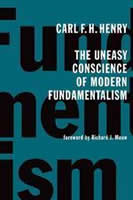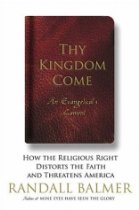The other night, when my parents were visiting from Kentucky, we all sat around the table doing as Evangelicals do: talking about the Bible. Now in our house this is rarely your run of the mill conversation since my wife is a biblical scholar, teaches Greek, Latin and Coptic and knows Hebrew and German as well. But as we drank wine and sipped coffee after diner we got on the topic of our favorite and least favorite books of the Bible.
Now let me be clear here about something. The very fact that all of us felt ok admitting that we have least favorite books of the Bible is not something that many Evangelical families would feel fine doing. In fact, that talk around our table would never have happened if other members of our extended family had been present. Many Evangelicals simply feel strange admitting to having a least favorite book. This is a bit odd since confessing to having a favorite biblical book is just the logical flipside of admitting that you have others that you like less, and therefore one or several that you like least. Nevertheless, something feels almost dirty or a bit off for many Evangelicals when it comes to openly criticizing the Christian tradition or admitting that there are parts that we would rather see disappear. Why these nagging feelings? What holds us back?
As social creatures we tend to form small communities and work to bind those groups tightly together with norms and stories and values. This holds true for loosely affiliated groups like Sox Fans (See the prevalence of “Sankees Yuck” shirts that proliferated when shirts with the original cheer were banned) as it does for more strongly coordinated units like military organizations or religious communities. But as much as we value these bonds and work to strengthen them, there is also always the nagging fact that they are contingent and easily lost. Churches disband, families fall apart and friends drift away. So we often feel compelled to deny the very contingency that we fear. We whistle past the social graveyard denying the possibility that our group will someday go as so many before have gone. One of the most important tools we have for keeping dissolution at bay and maintaining strong social units is a robust sense of in-group loyalty; a vague sense that “me and mine are right” regardless of what the question is.
Examples of in-group loyalty enforcement are easy to find but one of my favorites comes for the early years of President Obama’s first term in office. He was accused of going on an “apology tour.” Even today the editorials make a good read, especially those of Karl Rove. The point here is to notice the vitriol that so easily comes streaming out, whenever anyone, even a President (!) dares to violate the “me and mine, right or wrong” ethos of in-group loyalty. Probably the best blog post I ever wrote was on this topic. There I talked about the challenges faced by moderates when they try to avoid the worst extremes of the groups they belong to. They/we are accused of betrayal and disloyalty because they/we are able to see the other side’s point and maybe even understand the need for compromise. And compromise, as we all know from Fox News, has become a bad word in many circles.
I promise, I’m slowly working my way back to our diner table conversation about the Bible.
One of the problems with “Bible talk” especially in many Evangelical contexts is that Evangelicals are often quite worried about maintaining rigid or at least clear lines of group membership. One of the key marks of belonging is being “saved” or “born again” or “having a personal relationship with Jesus.” These are all catch phrases for marking one as on the inside or on the outside looking in. Are you one of us, or a potential convert? It’s reminiscent of why soldiers and ball players wear uniforms and Evangelicals sport Jesus fish decals and “He is the reason for he season” pins; it helps to know whose side someone is on. Along with these obvious markers of group loyalty, we also come to expect certain stock opinions, and perhaps the most important of these pertain to the Bible. There is seldom much cause for asking a fellow Evangelical if she or he likes or believes in the Bible, it is just assumed. And so a certain stock opinion on the Bible comes to be taken for granted even among folks who’ve never read much of the text.
“I love the Bible – the whole thing, even the parts I haven’t read!”
In all honesty, I think many Evangelicals and other Christians long to admit that there are big parts of the biblical text that are boring or unengaging or even flat out wrong. But they don’t know how to say this because this confession would not come across to their friends and family as a statement about ancient texts that most of them have not read in their entirety. Instead it would be treated more as a confession of disloyalty. “You mean youâ’re not one of us!?”
This dynamic is really insidious for several reasons. It skews the picture of Evangelicalism that is given to the world as well as our self-understanding. We think that all Evangelicals must agree on the Bible since there is so little public discussion that even hints at a diversity of opinion. This leads many LEs to think to themselves that they must be the ONLY weird ones who seriously question large chunks of the scriptures. It also makes Evangelicals appear to outsiders as a kind of homogenous block with something akin to fundamentalist uniformity of opinion. But perhaps most importantly, when Evangelicals and especially LiberalEvangelicals fail to voice a diversity of opinions on the Bible, we allow the uncritical default to win out. Our children end up growing up in churches where they assume that everyone thinks the same way, confesses the same doctrines, and agrees with every word that comes from the pulpit. A falsely uniform picture of the community scares many potential LEs away and causes many others to remain in the LE closet, afraid of being the first one to risk voicing a different opinion. It is time for that to stop and for more honest conversations about the Bible to take place inside Evangelical communities and Evangelical families.
For the record:
Mom likes Ephesians and dislikes Revelation.
Dad prefers James and could do without Revelation as well.
My wife loves Genesis but gets bored by Chronicles.
I love Exodus but get very frustrated with the way Job cops out at the end.
I’ll put my money or at least my blog where by mouth is and risk another comment. One of the most challenging aspects of taking the Bible seriously in a contemporary setting is the fact that so many of the ethical norms that it simply assumes uncritically have become major sticking points for modern Christians. Slavery and homosexuality top the list of many Evangelicals when it comes to problematic topics. There are many nuanced ways of reading the text and taking context into account, but I prefer a more straightforward exercise. I’ll risk it here in the hope that some LE somewhere will find it emboldening to hear it from someone else.
The Bible is pro-slavery and anti-homosexuality – and it’s wrong on both counts!
As a comment on an ancient text, that sentence shouldn’t be all that controversial. But my hunch is that many if not most Evangelicals might read it as a sign of my ultimate disloyalty to the cause. If that sentence causes me to lose my Evangelical credentials, then so be it, but I’ll choose honesty over uncritical group loyalty every time.


